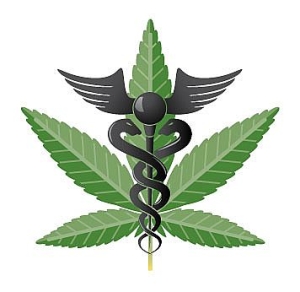One of the most contentious issues in the debate on medical cannabis concerns the effect of medical cannabis on the brain. Understanding the harms of medical cannabis in relation to the harms produced by conditions which may be ameliorated by its use is vital to understanding its viability as a treatment. For example, the side effect of mild short term memory loss may be vastly outweighed by the boon of its anti-emetic and anti-nausea properties for a cancer patient. We must always remember to assess health issues in relative terms, rather than absolute terms, when applicable.
The Importance of Considering Treatment Alternatives for Children with Intractable Seizures
Many in opposition to medical cannabis as a treatment option for children worry about the long-term effects of medical cannabis on the brains of children. This is a relevant concern in some cases, such as with the use of smoking as a delivery method or the need for high THC and psychoactive strains for treatment. However, many case studies have shown improvement in the frequency of intractable seizures caused by epileptic conditions in children with the use of low THC-high CBD (cannabidiol) oils, which have not responded well to other medications. The seizures that these children experience are extremely likely (for the sake of scientific objectivity, I begrudgingly shy from the word “definitely” here) to cause more damage to the brain than the use of medical cannabis ever could. The same may be true for other disorders or symptoms which may be ameliorated by the use of cannabis, for children and adults alike. Most prescribed medications used to treat intractable seizures are not optimally effective, with patients on several medications still often suffering up to hundreds of seizures daily.
Medical Cannabis vs. Standard Analgesic Therapy
Little evidence has been gathered comparing and contrasting the effects of medical cannabis versus other commonly prescribed and over-the-counter medications on brain development. To date, research has shown that cannabis use does not cause brain atrophy if use begins in adulthood. Though sensitive tests have shown that some brain processes may be altered by chronic and severe cannabis use, some of these deficits may be reversed by abstinence or, conversely, just may not be clinically measurable. Additionally, commonly accepted medications that currently replace medical cannabis for certain symptoms, such as opioids, also have the ability to change brain morphology, function, and connectivity. According to one study titled “Alterations in Brain Structure and Functional Connectivity in Prescription Opioid-Dependent Patients,” these findings “suggest that prescription opioid dependence is associated with structural and functional changes in brain regions implicated in the regulation of affect and impulse control, as well as in reward and motivational functions.” As such, even if medical cannabis and other medications which replace its use create comparable brain modifications, it is important to research and understand which medication has worse side effects, and in which patients. This information is currently lacking due to research constraints on medical cannabis due to its classification as a Schedule I controlled substance.
Cognitive Effects for Patients with Multiple Sclerosis
To date, some of the evidence that suggests that medical cannabis is a harmful treatment option for patients with MS points to the fact that on cognitive tests, MS patients who use medical cannabis may perform worse in comparison to MS patients who did not use medical cannabis. Given that the disease itself can cause cognitive declines, these results represent an understandable concern. However, when discussing conditions like MS with debilitating symptoms, maintenance of optimal cognition speed and quality is not the most important issue. A patient with multiple sclerosis who is using medical cannabis, with results being decreased pain, greater ease in sleeping, decreased self-reports of spasticity, and an increase in global perception of their health, is a medical success. Because of this, patient autonomy should be respected and those who find these quality of life benefits far outweigh any side effects should be allowed access to it.
Keeping Medical Cannabis Use in Context
According to the 1999 medical cannabis report produced by the Institute of Medicine (IOM), “For certain patients, such as the terminally ill or those with debilitating symptoms, the long-term risks [associated with smoking cannabis] are not of great concern… except for the harms associated with smoking, the adverse effects of marijuana use are within the range of effects tolerated for other medications.” Until studies directly comparing and contrasting the effects of various prescribed, over-the-counter, and illicit substances on brain morphology, function, and connectivity are conducted, those that describe the supposed negative changes in brain functioning possibly caused by cannabis use are unable to be interpreted properly and fully. They should not be interpreted as valid evidence for the continued prohibition of medical cannabis as a treatment option for patients who could benefit from its use, especially when other therapies have failed.
For more information on the topic of medical cannabis, please see Part 1, Part 2, and Part 3 of the article “Medical Cannabis: A Matter of Patients, Not Politics” and the article “Medical Cannabis and the Myth of Amotivational Syndrome.”
Author’s note: The views expressed in this article are those of the author and do not necessarily represent the views of, and should not be attributed to, Albany Medical College, Albany Medical Center, in-Training, or any affiliated organization.


